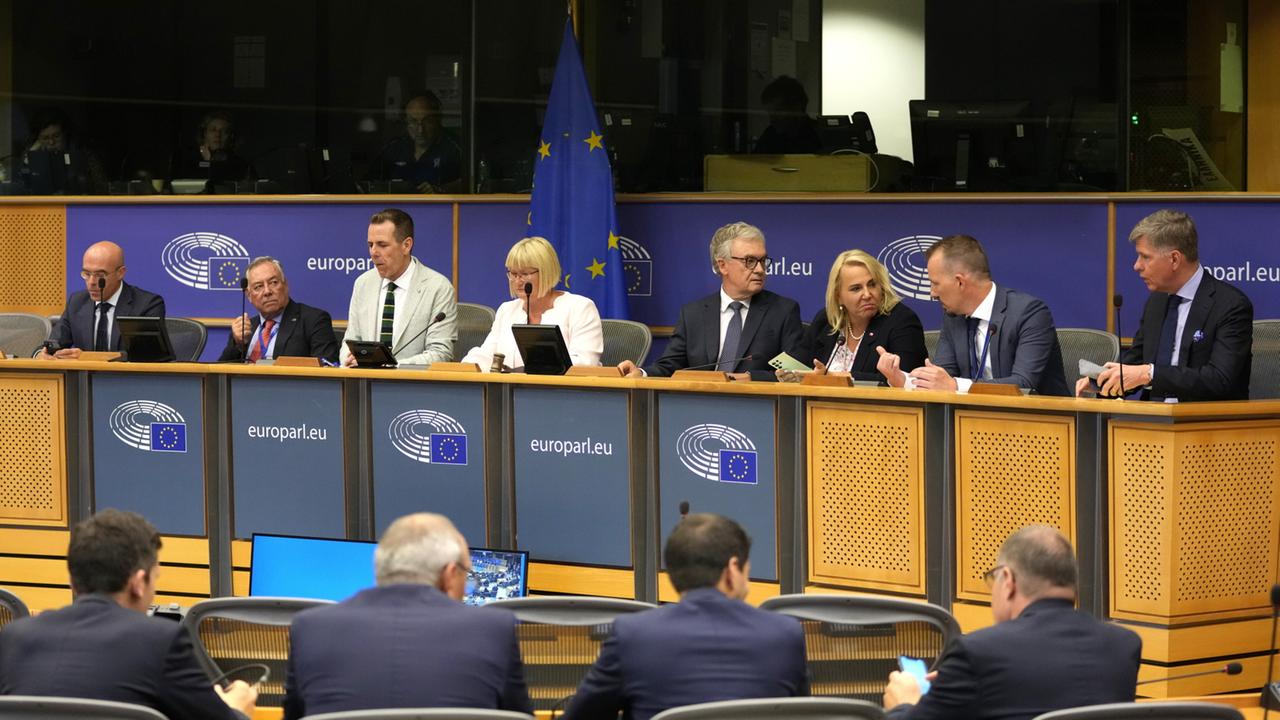With the “Patriots for Europe” there will soon be a new, large group in the European Parliament. In terms of content, it represents well-known positions of right-wing parties. The war in Ukraine is left out.
It is a respectable success for Hungarian Prime Minister Viktor Orban. The politician, who is largely isolated in the EU because of his authoritarian style of government and his proximity to the Kremlin, was not only able to give his governing party Fidesz, which has been non-factional since 2021, a political home again, but also won over the French right-wing populist Marine Le Pen. She had pushed for the constitution to be postponed until this Monday in order to wait for the election in France.
The Rassemblement National did not achieve the victory it had hoped for, but it did gain significantly and, following the European elections in June, also has the largest national delegation in the EU Parliament. It is understandable that the party's rising star, Jordan Bardella, is now the chairman of the new group. The first deputy will be the Hungarian Fidesz politician Kinga Gal.
“We patriotic politicians represent millions of Europeans who want change,” says Gal. They stand against the Brussels establishment, “which only wants to preserve its power.” “When Viktor Orban launched the initiative ten days ago in Vienna with the former Czech Prime Minister Andrej Babis and the Austrian FPÖ politician Herbert Kickl, they set out clear goals and rules in the 'Patriotic Manifesto.'”
“We want to continue to grow”
This includes the well-known positions of right-wing populist and right-wing extremist parties: the defense of the sovereignty of countries and the dismantling of EU integration, the fight against illegal migration and the so-called Green Deal.
The war in Ukraine is left out. It simply says that the aim is to work for peace, security and development instead of war, migration and stagnation. This vague formulation also made it possible for parties to join that – unlike Orban's Fidesz or Kickl's FPÖ, for example – clearly condemn the Russian war of aggression in Ukraine.
Jorge Buxadé Villalba, head of the delegation of the right-wing populist Vox from Spain, believes that the aim now is to focus on commonalities: “We are now the third largest group and want to continue to grow,” he says. “The aim is to counter this new EU Commission – probably under Ursula von der Leyen – with a patriotic force. We are now 84 members.”
More money, more weight
This enabled them to overtake the other right-wing faction, the “European Conservatives and Reformists”, and is now the third strongest force in the EU Parliament after the Christian Democrats and the Social Democrats. This means money above all: each faction receives around 100,000 euros per year per member.
The “Patriots for Europe” can also claim some important committees in Parliament and would also gain more weight in the so-called Conference of Presidents, where the group leaders meet.
The faction wants to be in the centers of power, explains Harald Vilimsky of the FPÖ: “I think that is good for Europe. Many say: Europe is moving to the right. I say: Europe is moving towards normality.”
AfD remains non-factional
The AfD will not be a member of the new parliamentary group for the time being. The party was excluded because of a Nazi statement made by its leading candidate Maximilian Krah, among other things, and then failed in its attempt to form its own parliamentary group. As a result, the AfD now has to make do with significantly less money at the European level.
Non-affiliated members also have less speaking time and are effectively excluded from legislative work. A fate shared by the Sarah Wagenknecht coalition, which also failed in its attempt to form its own parliamentary group.
Matthias Reiche, ARD Brussels, tagesschau, 08.07.2024 19:32





